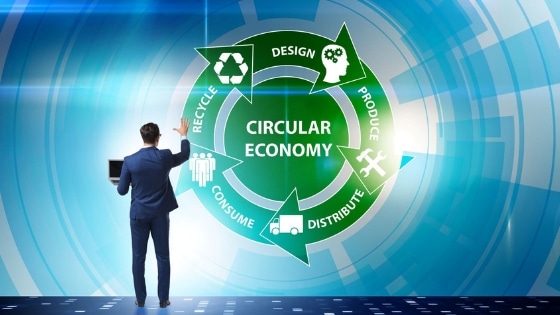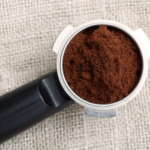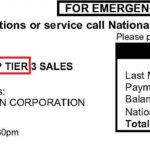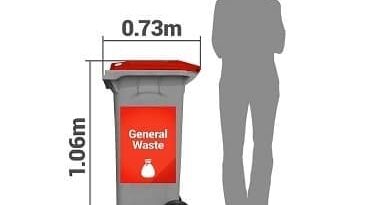Using Coffee Waste Energy As Fuel 

Energy Disrupter
Coffee Waste Energy 
Australians love their coffee. To say it is big in Australia is a huge understatement. It is an 8 billion dollar industry here, reaching over 2 billion dollars in revenue in 2018. So, trust me when I say that you can always find Australians nearby coffee.
>Download Now: Free PDF Business Owners Guide To Commingled Recycling Bin Services
Coffee grounds, in particular, are popular and well-loved all across Australia. The problem with that, however, is its byproduct being thrown in landfills. 4 billion tonnes of coffee grounds are produced every year. Six million tonnes of spent ground coffee make its way to landfills around the world yearly – of course, Australia included as a major contributor. What can we do, as responsible Aussie citizens, to reduce coffee ground waste?
One solution is turning it into biofuel. And, Australia can learn from the UK’s bio-bean when it comes to producing coffee waste energy.
Waster has shared information on recycling coffee cups, coffee pods, and even provides an option for Aussie businesses to recycle their coffee capsules. But now, Waster kicks thing up a notch and discusses turning coffee waste into energy (i.e., biofuel).
Below, Waster will delve more into coffee waste energy production from bio-bean.
A bit about Waster
Before we go further discussing coffee waste energy from leftover grounds, let us first share Waster.
We here at Waster provide you with innovative solutions for your business’s waste management and recycling needs. Moreover, we provide flexible, 30-day contracts instead of the typical lock-in contracts, which proves to be better.
Click on the blue button to learn more.
READ: House Built From Rubbish
Producing energy from coffee waste: an ongoing innovation
As mentioned above, used ground coffee (discarded coffee ground from a bean) can become a real problem when left in landfills. Turning it into biofuel is the best solution for this – bio-bean think so.
Arthur Kay set bio-bean up to specifically turn coffee grounds waste and turn it into energy in the form of biofuel.
Coffee waste energy: the process of creating biofuel from coffee
Before bio-bean created solid fuels used mostly for most household and commercial purposes, they first started working on, of course, coffee-based biofuel to be used in London’s diesel-powered buses. They even worked with Shell on that!
The process to create coffee waste energy first involves mixing waste with chemical hexane, a solvent considered safe and easy to you found in gasoline. After that, they heat the mixture to 140-degree Fahrenheit temperature, which results in the hexane evaporating after a few hours. Then, methanol is fused with a catalyst in the leftover substance. Finally, after all of that, the glycerol is extracted out to create biodiesel fuel.
Making the process faster
Although we certainly think of transforming coffee waste into energy as good news, another sort-of predicament arises. Because of the significant amount of coffee waste produced, reusing it as biofuel might become a tad bit too time-consuming due to the lengthy process. A team of scientists at Lancaster University solved the problem and developed a process that can cut the time it takes. Amazingly, it can now only take a mere 10 minutes!
The scientists substituted hexane with a specific catalyst, sodium hydroxide. They directly placed the mixture with the used coffee grounds. As a result, it immediately extracts the oil from the waste faster than when using hexane.
Dr Vesna Najdanovic-Visak, leader of the experiment and engineering department professor of the said university stated in their report titled Journal of Environmental Chemical Engineering that this development “could significantly cut down biodiesel production costs”.
How solid biofuel is made from coffee
As mentioned above, bio-bean first worked on providing coffee waste energy in the form of biofuel to London’s buses. However, they later changed their focus on solid fuels instead because of the lack of viability commercially.
How does bio-bean make solid fuel?
First, those at bio-bean decontaminate the used coffee grounds to remove paper cups or plastic bags. Then, they put them through a dryer and screening process. Essentially, how this works is they extract natural oils within the used coffee grounds to produce biofuel. As a result, biomass pellets and home fire logs are produced.
Through a different process, they can also produce a natural flavour extract from the used coffee grounds.
Uses of these solid biofuels
As an environmentalist, knowing all the efforts done to attain a better environment must surely make you elated. Waster thinks so, as well.
According to CNN, the produced biomass pellets can be a source of energy to power industrial boilers, heat commercial greenhouses or dry cereal crops. As for the home fire logs, they can be used in log-burning stoves.
George May, director and Chief Commercial Officer of bio-bean, said that “Coffee is highly calorific and lends itself to being a really fantastic fuel”. She added, “They burn about 20% hotter and 20% longer than wood logs do”.
Final thoughts on coffee waste energy
It is always nice to hear about developments like this. With that said, further evaluation or study should still be done, specifically in regards to carbon-based fuel’s replacement being in the top priority.
Waster wishes it the best and more groundbreaking developments to come in the near future.
More things you need to know about Waster
If you’re looking for recycling bins, check our waste recycling shop and find the best deals in terms of pricing and services.
Also, please call 1300 WASTER (1300 927 837), or email us at [email protected] if you have any further questions.




 – Can Waste Management Reduce Carbon Footprint
– Can Waste Management Reduce Carbon Footprint













 – Making Waste Services…
– Making Waste Services…


 – Book Restaurant Grease Trap Treatment
– Book Restaurant Grease Trap Treatment
 Yes Or No?
Yes Or No?